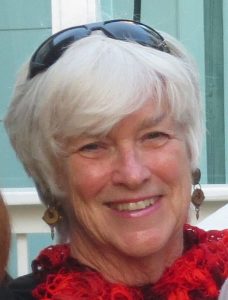 Jane Seaton
Jane Seaton
Seaton Consultants, Athens GA
A few years into my career as an educational audiologist, I was shocked to hear a mother whose child I had seen at 10 months of age tell a parent group how devastated she was to hear the audiologist say that her daughter would never talk. Assuming (incorrectly as it turned out) I was that audiologist, I was appalled to think I would have said anything that could possibly be interpreted this way. Reflecting back on my reaction then, I now realize how often our comments can be taken out of context or misinterpreted in stressful situations such as when parents first learn of their child’s hearing loss.
What Was Said / What Was Heard
Margolis (2004) reported approximately half of new information is forgotten immediately, and half of unfamiliar information is remembered incorrectly. Add in the increasing cultural diversity and non-native English speakers being seeing in all audiologic practice settings, and we have the perfect recipe for miscommunication.
It has been well documented that most children with congenital hearing loss are born to parents with typical hearing, and the vast majority of these parents have little or no prior exposure to or experience with deafness. To say that identification of hearing loss through the universal newborn hearing screening process is often unexpected, shocking and stressful for new parents is a huge understatement. In our eagerness to help families access state-of-the-art technology and services as quickly as possible, we may unintentionally compound parent confusion and stress by providing lots of new information in a short period of time at the end of a diagnostic appointment. Too frequently little time is left for questions or feedback concerning what parents have heard from the audiologist.
Reducing Misunderstandings
Parents report they need for us to take time to listen to them and encourage them to ask questions (Luterman and Kurtzer-White, 1999). However, when the diagnosis of hearing loss is unexpected, some parents may not feel emotionally ready or knowledgeable enough to ask questions until they’ve had time to process what has been heard. It can be helpful to encourage parents and caregivers to let you know how they are feeling prior to, during and after their initial diagnostic appointment. Asking a parent what they will tell a spouse or other family member about our results and recommendations is a strategy that can help us know what has been heard and what information needs repeating or re-explaining in nontechnical terms. Use of an interpreter for non-native English speakers can be helpful, but this also adds another link in the communication process where misunderstandings can occur (Alberg, 2003).
Helping parents clarify their “next step” (e.g. scheduling another appointment, talking with pediatrician, contacting their early intervention service coordinator) facilitates parent empowerment and should be automatic each time a family is seen. Providing names, job descriptions and reasons why other professionals in the EHDI and/or education systems may be contacting parents can lessen some of the confusion felt by families when starting their journey with hearing loss. I’ve often found that parents appreciate a brief phone call 2-3 days after we’ve met to find out how they’re doing and answer any questions, even when we have a follow-up appointment scheduled later.
 Audiologists as Reflective Practitioners
Audiologists as Reflective Practitioners
I admit I was relieved to find out that I wasn’t the audiologist being referred to in the situation described above, but I often wonder how many times misunderstandings have occurred without my realizing it. Donald Schön described the need for reflective practice more than 30 years ago, and it is probably more valuable than ever today (Scaife, 2010). Now that a wealth of information is available instantly from a variety of sources, the value of taking time to listen to ourselves as well as our clients and their caregivers is immeasurable.
References
Alberg, J. (2003). BEGINNINGS serves families with diverse needs. Volta Voices, 1, 15-17.
Luterman, D. & Kurtzer-White, E. (1999). Identifying hearing loss: Parents’ needs. American Journal of Audiology, 8, 13-18.
Margolis, R. (2004). Audiology information counseling: What do patients remember? Audiology Today, 16, 14-15.
Scaife, J. (2010). Supervising the reflective practitioner: An essential guide to theory and practice. London: Routledge.
